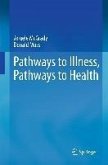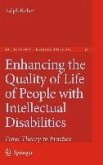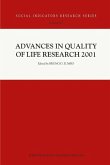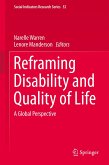A modern definition of health goes beyond the biological dimension to encompass human functionality and well-being. Quality of life is one of the most popular health-related concepts and simultaneously reflects several dimensions of individual health. Health-related quality of life (HRQoL) is taken to include physical, psychological, and social aspects of positive well-being as well as negative effects of illness, treatment, and infirmity. Quality of life outcomes are now considered an important indicator of the success of both diagnostic and therapeutic procedures. In this book, recognized experts discuss the findings of various studies, including their own, regarding HRQoL in patients with cardiovascular diseases. The impact of the newest forms of medical treatment on well-being is considered in patients with arterial hypertension, coronary artery disease, heart failure, arrhythmias, and stroke as well as in patients who have undergone interventional procedures or have implantable cardiac devices. By summarizing established facts and presenting new data, this book will be an invaluable source of information for all practitioners in the field.
Dieser Download kann aus rechtlichen Gründen nur mit Rechnungsadresse in A, B, BG, CY, CZ, D, DK, EW, E, FIN, F, GR, HR, H, IRL, I, LT, L, LR, M, NL, PL, P, R, S, SLO, SK ausgeliefert werden.
From the reviews:
"The purpose is to present the concept of quality of life in cardiovascular disease and its determinants to practitioners and provide future insights to researchers in this area. The audience for this book is broad: students, nurses, physicians in training, and practicing physicians caring for patients with cardiovascular problems, such as cardiologists, cardiac surgeons, neurologists, and stroke physicians. ... It is easy to read and includes provides excellent references on quality of life questions." (Krishna Kancharla, Doody's Book Reviews, July, 2013)
"The purpose is to present the concept of quality of life in cardiovascular disease and its determinants to practitioners and provide future insights to researchers in this area. The audience for this book is broad: students, nurses, physicians in training, and practicing physicians caring for patients with cardiovascular problems, such as cardiologists, cardiac surgeons, neurologists, and stroke physicians. ... It is easy to read and includes provides excellent references on quality of life questions." (Krishna Kancharla, Doody's Book Reviews, July, 2013)









